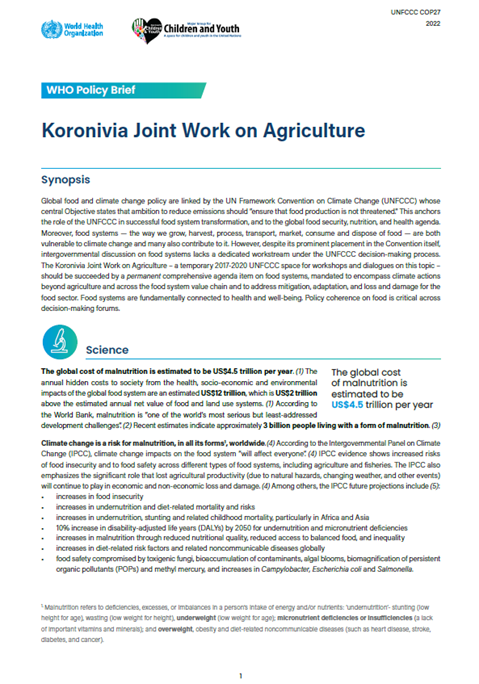World Health Organization (WHO), 2022

Global food and climate change policy are linked by the UN Framework Convention on Climate Change (UNFCCC) whose central Objective states that ambition to reduce emissions should “ensure that food production is not threatened.” This anchors the role of the UNFCCC in successful food system transformation, and to the global food security, nutrition, and health agenda. Moreover, food systems — the way we grow, harvest, process, transport, market, consume and dispose of food — are both vulnerable to climate change and many also contribute to it. However, despite its prominent placement in the Convention itself, intergovernmental discussion on food systems lacks a dedicated workstream under the UNFCCC decision-making process. The Koronivia Joint Work on Agriculture – a temporary 2017-2020 UNFCCC space for workshops and dialogues on this topic – should be succeeded by a permanent comprehensive agenda item on food systems, mandated to encompass climate actions beyond agriculture and across the food system value chain and to address mitigation, adaptation, and loss and damage for the food sector. Food systems are fundamentally connected to health and well-being. Policy coherence on food is critical across decision-making forums.



